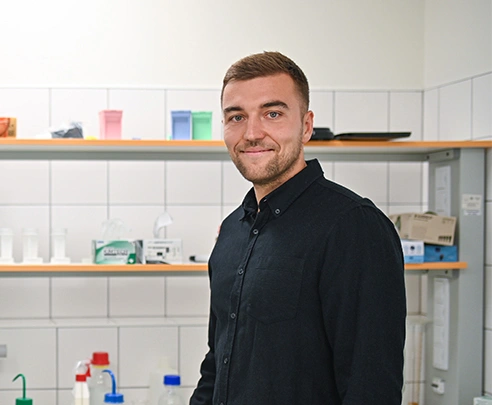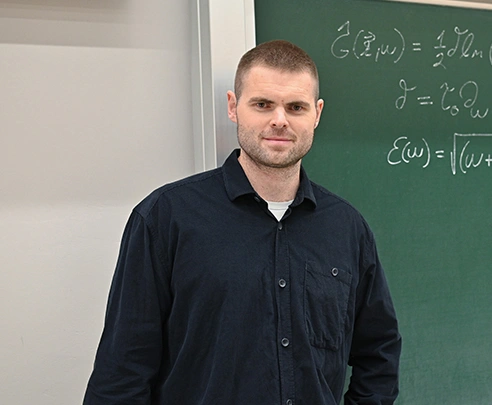The volume of data that mankind needs to process and store is constantly growing, and with it comes the need for increasingly sophisticated database systems. Doc. Ing. Michal Kvet, PhD., the head of the Department of Informatics at the Faculty of Management Science and Informatics at the University of Žilina, researches such systems. His main area of focus is temporal databases, but also data analytics and its application in smart traffic control systems.
While in the past we had records or files on ordinary floppy disks, and later on CDs or USB drives, today we use cloud storage. The volume of stored media and data is constantly increasing – not linearly, but exponentially. This is why we need to search, analyse and link data efficiently. This is precisely the area of research of Michal Kvet, who focuses mainly on temporal database systems, their performance and scalability. These are special types of databases that are designed to store and manage data that changes over time. Their main advantage is that they can not only store current data, but also record what data was valid in a certain time period or when the last change occurred.
Michal Kvet sees the biggest benefits of his research in data analytics. As the university he works at was originally called the University of Transport, this focus is still at its heart. Therefore, he works on the application of data analytics in smart traffic control systems and traffic management in general. „One of the projects we are working on is the analysis of flight data and optimisation of flight operations with respect to its efficiency and safety. This means, for example, ensuring appropriate aircraft separation distances or avoiding problems that may arise from military aircraft or temporary airspace closures,“ he explains. He is also currently working on a project in which he is processing and analysing environmental data from various sensors regarding temperature and pollution in order to make predictions, scenarios and plans for the future. His biggest scientific goal is to have the results of his research applied in practice, integrated into information systems and used by businesses. This is already happening to some extent locally, but it is a challenge, especially in the case of greater international cooperation.
Besides research, Michal Kvet also supervises postgraduate students, organizes workshops on data processing and environmental data analytics at international conferences, and collaborates with multiple universities abroad to create study materials. He has authored several textbooks and monographs on database systems, cloud computing, and temporal databases.
As part of his research, last year he published a book, Developing Robust Date and Time Oriented Applications in Oracle Cloud, with Packt Publishing. The book addresses the issues of time processing, regional specificity, temporal functions, and time integrity in cloud repositories that may be in different locations around the world.
Michal Kvet became involved in database systems during his undergraduate studies, when he spent two years working on hospital information systems with the aim of brain tumour detection. During his studies he started to cooperate with Prof. Ing. Karol Matiaško, PhD., at that time the dean of the faculty, who invited him to continue his research as doctoral studies.
„Database systems appealed to me in particular because there is some very nice mathematics behind them that intertwines with computer science. Students think it's a complex issue, but when you really break it down into the details, there are a few algebraic logic operations behind it that can be used to build an entire database system and the entire management of that data,“ he explains.
Michal Kvet has been the head of the Department of Informatics since 1 July 2024. In this new position, he likes to collaborate with colleagues and advance teaching and research at the department. However, he feels most at home in research.
„Science is very important in terms of the future because many things are changing dynamically. The role of science is to understand these situations and relationships and then react to them very quickly, effectively and correctly,“ he thinks.
Through his work in science, he has gained better coordination and collaboration skills, improved his English and gained new partnerships through conferences and cooperation with universities abroad. The associated travel has allowed him to experience different regions, cities, cultures and world views. He confirms his devotion to science by his favourite leisure activity – reading scientific literature. In addition, he relaxes while woodworking, walking his dog, listening to music, and sound engineering.

